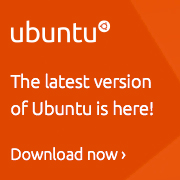Bookmarks for November 10th through November 11th
These are my links for November 10th through November 11th:
- Learn Linux, 302 (Mixed environments): Print services – In this article, learn to:
Create and configure printer sharing
Configure integration between Samba and the Common UNIX® Print System (CUPS)
Manage Windows® print drivers, and configure downloads of print drivers
Configure the [print$] share
Understand security concerns with printer sharing
Set up and manage print accounting - Chaos und Ordnung – zur Aktualität der Selbstorganisation – Zum 100 Geburtstag von Heinz von Foerster | Forschung und Gesellschaft | Deutschlandradio Kultur – Was haben ein Ameisenstaat, das Finanzsystem oder gar die Evolution gemeinsam? Sie alle können als Selbstorganisationsphänomene betrachtet werden. Die Theorie der Selbstorganisation erfährt gerade heute in verschiedenen sozial- und medienwissenschaftlichen Disziplinen eine Art Comeback.
Wichtige Erkenntnisse für diese Theorie lieferte der österreichisch-amerikanische Kybernetiker Heinz von Foerster, der – vor 100 Jahren – am 13. November 1911 geboren wurde. Sein Verdienst ist es, immer wieder auf die unvermeidlichen blinden Flecken des wissenschaftlichen Beobachters aufmerksam gemacht zu haben. - Social Networks: What Maslow Misses | Psychology Today – Maslow's model needs rewiring so it matches our brains. Belongingness is the driving force of human behavior, not a third tier activity. The system of human needs from bottom to top, shelter, safety,sex, leadership, community, competence and trust, are dependent on our ability to connect with others. Belonging to a community provides the sense of security and agency that makes our brains happy and helps keep us safe.
- Why Peter Drucker Distrusted Facts – Stephen Wunker – Harvard Business Review – Consider how Drucker's view contrasts with the typical corporate process. Decision makers may have a general sense of stakeholders' opinions, but in their eagerness to act and to avoid controversy they do not probe to understand these perspectives fully. Rather, they quickly make a decision and then marshal facts to support it. Indeed, one top consulting firm has boasted for decades of an approach that develops an early hypothesis and refines it over the course of an engagement — rather than testing many competing hypotheses in the search for the one that best represents the truth.
- Is Rational Thinking in Business Always Better than Instinct? – Forbes – This challenge of learning an art is essentially a process of internalizing the decision-making process framed to a very specific context. How you get better at it is by learning to accelerate how you recognize known (often complex) patterns. The higher your skill level the more complex the pattern you can perform and make decisions on without having to consciously think about it. It is in effect non-rational because you are so attuned to the habit that your body may act or react before you even realize you are doing it.




